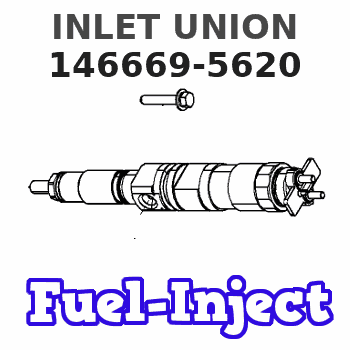Information inlet union
BOSCH
9 461 623 647
9461623647
ZEXEL
146669-5620
1466695620
MAZDA
WL8413VH6
wl8413vh6

Rating:
Include in ###:
Cross reference number
Zexel num
Bosch num
Firm num
Name
146669-5620
9 461 623 647
WL8413VH6 MAZDA
INLET UNION
C 11FV EYE parts(VE) Others
C 11FV EYE parts(VE) Others
Information:
The problems in this chart are problems that do come about and are normally called "low power." These problems are not necessarily more common than engine problems, but they are possible problems which you need to read and check before an engine is disassembled.Read all of the items but make sure the first four are checked completely before making any engine test.Recommended Procedure
1. Tachometer Error ... To check, connect a tachometer of known accuracy to the engine. Run the engine and make a comparison of the readings of the vehicle and test tachometers. If vehicle tachometer is bad, make repairs as necessary or install a new tachometer.2. Engine Operated at High Altitude ... Less oxygen at higher altitudes causes the engine horsepower to go down. There is no effect on the 225 horsepower engine for the first 2280 m (7500 ft) above sea level of operation. There is no effect on the 235 and 250 horsepower engines for the first 1524 m (5000 ft) above sea level of operation. See the Fuel Setting And Related Information Fiche for the correct fuel setting for the higher altitude of operation.3. Brakes Do Not Completely Release ... Check the brakes by feeling all the brake drums. If the brakes of a wheel do not completely release, the brake drum for that wheel will be hotter than the brake drums for the other wheels. With the truck lifted with a jack, the wheels must have free rotation when turned by hand.4. Vehicle Operated in Too High a Gear ... If the operator does not shift the truck correctly, or operates the truck in a "lug" condition (using the truck in too high a gear for engine rpm to go up as accelerator pedal is pushed farther down, or using the truck in a gear where engine rpm goes down with accelerator pedal at maximum travel), poor vehicle performance is the result.5. Extra Engine Driven Equipment ... Air compressors, hydraulic pumps, alternators and other engine driven equipment that has damage, or that was not installed correctly, or that is not in correct adjustment can take more horsepower to drive than expected. If necessary, disconnect the equipment and test the engine.6. Speedometer Error ... A bad speedometer does not give the correct speed or the correct indication of fuel consumption. An indication of low speed can cause the operator to feel that he has a power problem.7. Speeds Too High ... The need for more horsepower is easy to see as the speed of the vehicle is increased. This is especially true if the front of the vehicle has a large surface area. Application personnel can give you the horsepower necessary for different vehicle designs at different speeds.8. Overload on Vehicle ... Application personnel can give you the horsepower needs for different vehicles.9. High Moving Resistance ... Soft ground conditions cause a need for more horsepower. To see if the problem is the engine, test the vehicle on a surface known to be
1. Tachometer Error ... To check, connect a tachometer of known accuracy to the engine. Run the engine and make a comparison of the readings of the vehicle and test tachometers. If vehicle tachometer is bad, make repairs as necessary or install a new tachometer.2. Engine Operated at High Altitude ... Less oxygen at higher altitudes causes the engine horsepower to go down. There is no effect on the 225 horsepower engine for the first 2280 m (7500 ft) above sea level of operation. There is no effect on the 235 and 250 horsepower engines for the first 1524 m (5000 ft) above sea level of operation. See the Fuel Setting And Related Information Fiche for the correct fuel setting for the higher altitude of operation.3. Brakes Do Not Completely Release ... Check the brakes by feeling all the brake drums. If the brakes of a wheel do not completely release, the brake drum for that wheel will be hotter than the brake drums for the other wheels. With the truck lifted with a jack, the wheels must have free rotation when turned by hand.4. Vehicle Operated in Too High a Gear ... If the operator does not shift the truck correctly, or operates the truck in a "lug" condition (using the truck in too high a gear for engine rpm to go up as accelerator pedal is pushed farther down, or using the truck in a gear where engine rpm goes down with accelerator pedal at maximum travel), poor vehicle performance is the result.5. Extra Engine Driven Equipment ... Air compressors, hydraulic pumps, alternators and other engine driven equipment that has damage, or that was not installed correctly, or that is not in correct adjustment can take more horsepower to drive than expected. If necessary, disconnect the equipment and test the engine.6. Speedometer Error ... A bad speedometer does not give the correct speed or the correct indication of fuel consumption. An indication of low speed can cause the operator to feel that he has a power problem.7. Speeds Too High ... The need for more horsepower is easy to see as the speed of the vehicle is increased. This is especially true if the front of the vehicle has a large surface area. Application personnel can give you the horsepower necessary for different vehicle designs at different speeds.8. Overload on Vehicle ... Application personnel can give you the horsepower needs for different vehicles.9. High Moving Resistance ... Soft ground conditions cause a need for more horsepower. To see if the problem is the engine, test the vehicle on a surface known to be
Have questions with 146669-5620?
Group cross 146669-5620 ZEXEL
Mazda
146669-5620
9 461 623 647
WL8413VH6
INLET UNION
